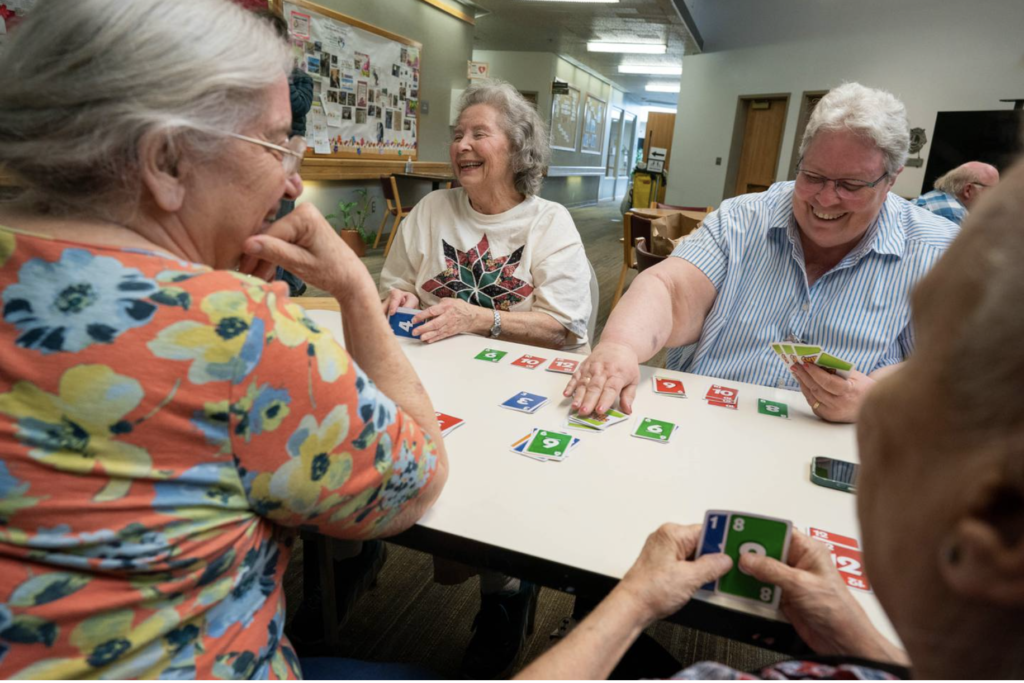I spent some afternoons with a group of women who play cards at Anchorage Senior Center, to learn about how they are recovering from the pandemic years.
Their story begins this way:
Just after lunch on weekdays at Anchorage Senior Activity Center, a group of women settles into a cluster of tables in the lobby to play Skip-Bo, dominoes and canasta.
There might be 40 of them on a given day. Most of the women are over age 70. A few are over 90. The card game is their pandemic comeback story.
COVID-19 shut down their in-person gatherings at the center, a social hub for 1,700 senior members, in 2020. After vaccines became available, the women campaigned to come back in person, calling daily to check if the center had reopened the tables. In January, the center finally did. The players flooded back, leading the in-person return to the facility. The games are more popular now than ever — an early sign, staff say, of hunger among Anchorage seniors to get together in person, despite the risks.
“We’ve never had this many games running,” said Diane Pyle, who organizes card gatherings.
The card players have lived through a lot: the Great Depression, the polio epidemic, various wars, the civil rights movement, the tech revolution. Most of the COVID deaths in Alaska and the nation occurred among people in their age group, and social isolation hit them hard. The pandemic closed down their churches and sent their book clubs onto Zoom screens with frustrating technical requirements. They missed holding their grandchildren. They lost relatives and friends and couldn’t attend their funerals. Just about all of them worried that the virus would kill them. They’re still at higher risk.
They play cards, they’ll tell you, because that’s how people used to connect and pass time before they were all staring at TVs and smartphones. And if the last two years have taught them anything, it’s that connection is precious.
“They were like, ‘We’ve been stuck in our homes, we’ve lost loved ones, we’re vaccinated, let us get back together because tomorrow isn’t promised,’ ” said Tabitha Karpow, communications and development director at the center. “They were done with what the pandemic had taken from them.”
